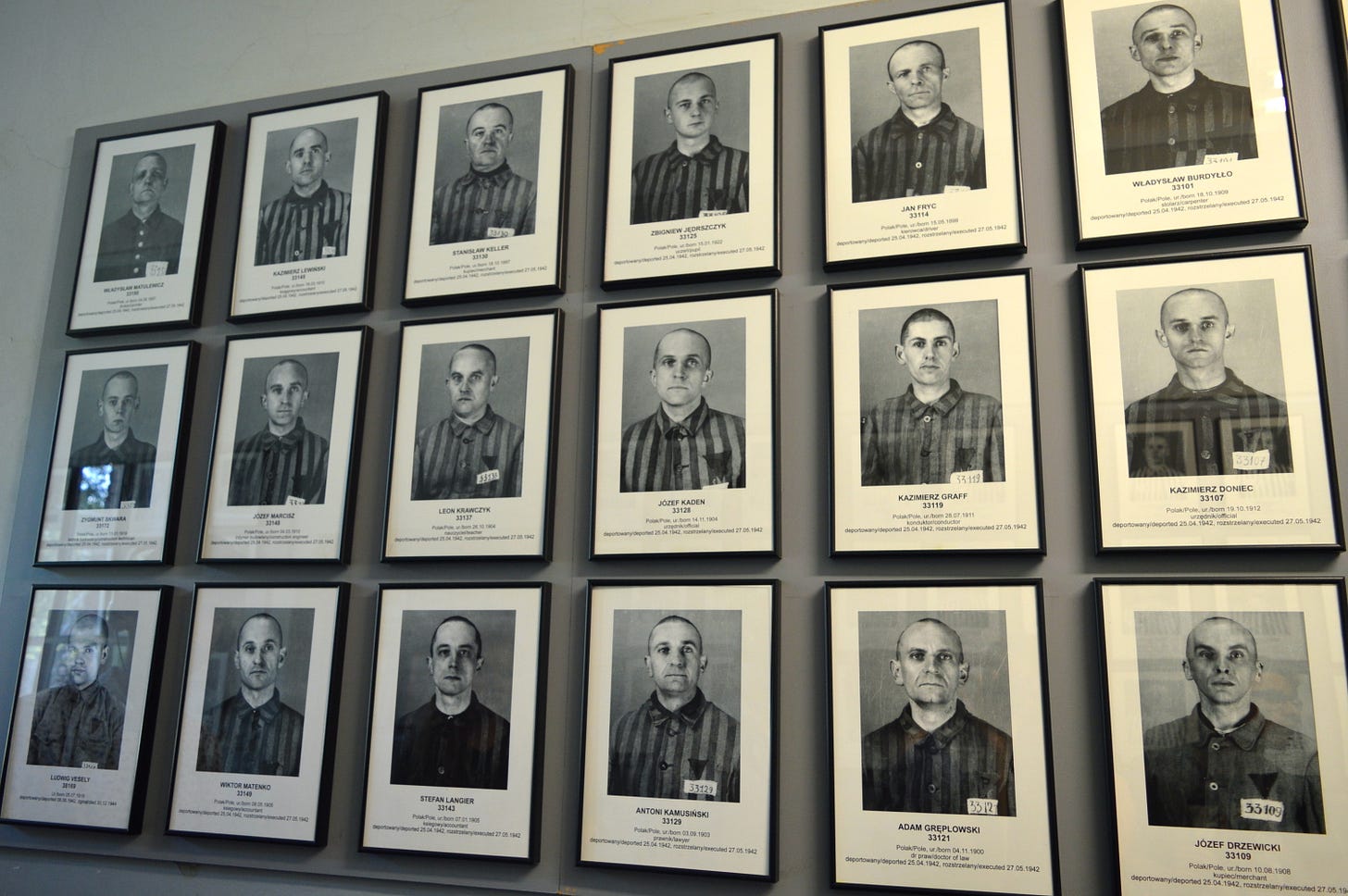Please, no more fake Holocaust memoirs ever again
Anything that skews the historical record only plays into the hands of the deniers
SEVERAL YEARS ago, I spent much time researching the experiences of a man called Denis Avey, a British prisoner-of-war who claimed in a best-selling memoir that he had broken into Auschwitz to swap places with a Jew. Along with Adrian Weale and Jeremy Duns, I uncovered some eight versions that Avey had told over the years of what was without doubt a highly tall tale, and I wrote about our findings in the Daily Mail and the New Statesman.
For a while, all went quiet, and Avey was to die in 2015. It seemed that Avey’s publisher, Hodder & Stoughton, was happy to let the matter drift, and to continue to enjoy the revenue from a Holocaust memoir that is highly dubious. However, as of this weekend, I am delighted to see that the firm is planning to include qualifying notes in any future edition of the book. It’s a start, but it’s not enough. Frankly, the book should be withdrawn from publication.
One of the issues I found when confronting Avey and his story was the enormous willingness to believe anybody with a comforting tale to tell about the Holocaust.
Such stories of course make good bucks for publishers, but the likes of Avey are also feted as examples of British heroism, and apparently show that many Britons did indeed do their bit to save Jews. In fact, in 2010, Avey was even awarded a British Hero of the Holocaust award at 10 Downing Street by the Prime Minister Gordon Brown.
Although of course there were some Britons who did save Jews – such as Sir Nicholas Winton, who appears on the left of the picture – in truth there were very few who directly assisted Jews before or during the war. The problem with dodgy Holocaust memoirs propagated by Denis Avey and others is that they not only provide moral comfort where there is none or very little, but they also skew the historical record.
The latter of these two problems is by far the most dangerous.
There are plenty of Holocaust deniers who just adore a phoney Holocaust memoir such as Fragments by Binjamin Wilkomirski, Angel at the Fence by Herman Rosenblat, and Misha by Misha Defonseca – although there are many more. It should also be stressed that even in well-respected Holocaust memoirs there are passages that are clearly exaggerated or confected, and as I have found when researching my biography of Josef Mengele, far too many survivors claim to have been present at one of his selections at Auschwitz.
The reason deniers love these works is because they can argue that if these memoirs are false or problematic, then how we can trust any Holocaust memoir? And if we can’t trust them, how can we be sure that the Holocaust happened as these people say it did, or indeed, whether it ever really happened at all?
It’s for this reason that publishers must be immensely careful when releasing new Holocaust memoirs, as falsifying the history of the Holocaust provides ammunition for antisemitism today – it is as simple as that. And it is not just publishers that need to be careful, but so too should governments and various educational trusts that do such great work in raising public consciousness about the Holocaust.
Finally, it is up to readers of Holocaust memoirs to be mindful of the problem, and not to swallow any stories that seem too fantastical or too daring. We should all remember that we will never hear the true stories of far too many – those whose pictures can be seen at the top of this page, the ones who were never to escape from Auschwitz.





Very much agree. There are a number of notorious ‘tellers of tall tales’ Christopher Lee for example. But there is something particularly noxious about those who chose to present fictional memoirs of the Holocaust. What responsibility do publishers have to undertake due diligence and not take these at face value, they do as much harm to our understanding of the Holocaust as certain pyjama based ‘children’s’ books.
Obviously I agree that there is no place for inaccuracy in anything relating to the Holocaust, which is why I have a huge amount of respect for those who put all the hard work into finding out the truth, or otherwise, behind some of these narratives.
A question, though, if I may - why do people like Avery do it? Do you think he was simply and cynically trying to reap the rewards of something he knew perfectly well never happened? Or did he 'improve' on something real until the real story came to be encased in a thick carapace of self-aggrandising fiction? Or was there some actual trauma which he managed to cover up by creating a narrative in which he was more in control, more the hero and benefactor, than he managed to be in real life? In short, did he come to believe any of this stuff?
'Old men forget, and all shall be forgot - but we'll remember with advantages what deeds we did that day' ...
Few narratives of any sort are indisputable; plenty involve wishful thinking, selective memory, literary 'improvement' and revision; when the subject is the Holocaust, though, the stakes are perhaps uniquely high. I very much agree with you that publishers these days have a real obligation to run any Holocaust narrative past someone - ideally, several people - with deep scholarly knowledge of the sources, existing narratives and, yes, existing fakes. And there is literally no excuse at all for Hodders to keep the wretched Avery book on sale.